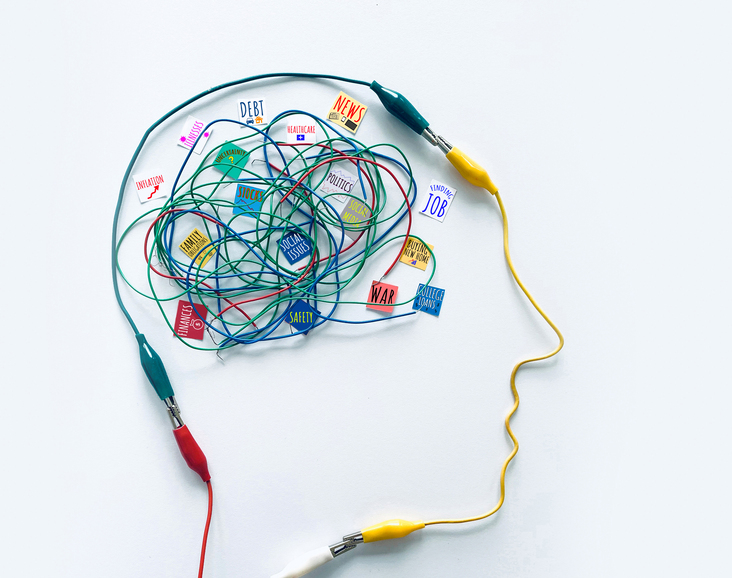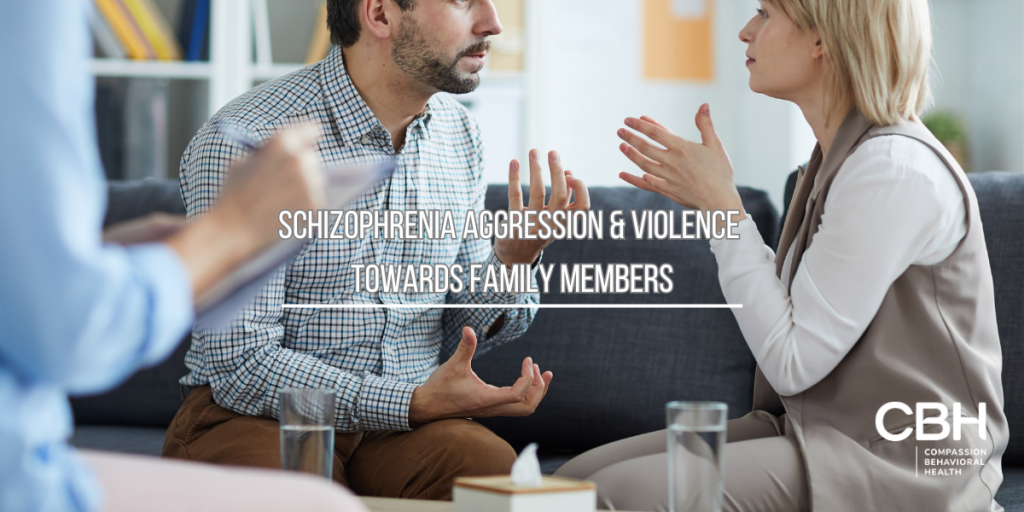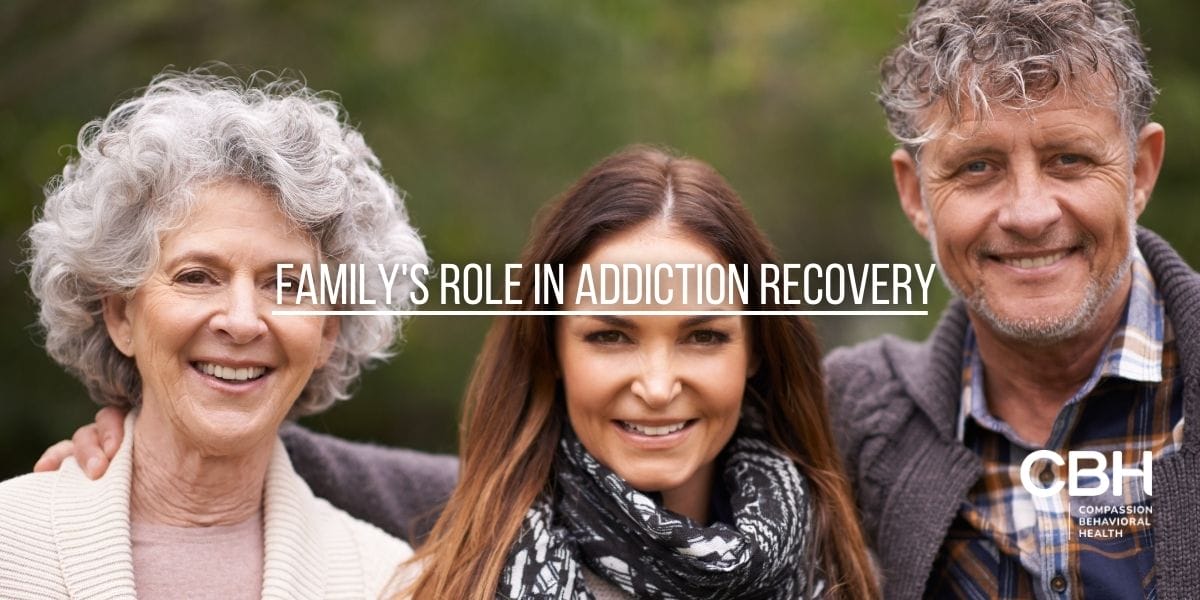Schizophrenia is a complex mental disorder characterized by abnormal thoughts, perceptions, and behaviors. One of the most challenging aspects of schizophrenia for families is dealing with aggression. In this article, we will explore strategies for managing schizophrenia-related aggression towards family members. Understanding the link between schizophrenia and aggression is crucial in developing effective approaches.
Understanding Schizophrenia and Aggression

Schizophrenia is a chronic brain disorder that affects how a person thinks, feels, and behaves. It is a complex condition that can have a profound impact on an individual’s life. While not all individuals with schizophrenia display aggression, research suggests there is a correlation between the two. The exact reasons for aggression in schizophrenia are still being studied, but it is believed to be influenced by various factors such as genetic predisposition, brain chemistry imbalances, drug abuse, and environmental stressors.
Living with schizophrenia can be challenging, both for the individuals themselves and for their loved ones. It is important to approach the topic of aggression with empathy and understanding, recognizing that it is a symptom of the illness rather than a personal choice or character flaw.
The Link Between Schizophrenia and Aggressive Behavior
Aggression in schizophrenia can manifest in different forms, including verbal or physical aggression directed toward family members or caregivers. It can be a distressing experience for both the person with schizophrenia and those around them. The presence of aggression can significantly impact the quality of life and relationships of individuals with schizophrenia.

Understanding the triggers for aggression is crucial in managing and preventing such behavior. Aggression in schizophrenia can be triggered by a range of factors such as fear, frustration, paranoia, or delusions. These factors can contribute to a heightened sense of threat or a distorted perception of reality, leading to aggressive outbursts.
It is essential to remember that aggression is not a defining characteristic of schizophrenia, but rather a symptom that requires proper management. With the right support and treatment, individuals with schizophrenia can learn coping mechanisms and strategies to minimize the occurrence of aggressive behavior.
Identifying Signs of Aggression in Schizophrenia Patients
Recognizing the signs of aggression in individuals with schizophrenia is vital for both their safety and the welfare of family members. It is important to be aware of the warning signs and take appropriate measures to ensure everyone’s well-being.
Increased irritability and agitation can be early indicators of potential aggression. Verbal threats, physical intimidation, or violent acts may follow if the underlying triggers are not addressed. Family members and caregivers should be vigilant in observing changes in behavior, as early intervention can help prevent escalation.

Creating a safe and supportive environment is crucial in managing aggression in schizophrenia. This can involve implementing strategies to reduce stress, such as providing a calm and structured routine, ensuring access to therapy and medication, and fostering open communication within the support network.
It is also important to involve mental health professionals in the management of aggression in schizophrenia. They can provide valuable guidance and support in developing personalized schizophrenia treatment plans that address the unique needs of each individual.
By understanding the link between schizophrenia and aggression, and by implementing appropriate strategies and support systems, it is possible to improve the quality of life for individuals with schizophrenia and create a safer and more harmonious environment for everyone involved.
The Impact of Schizophrenia-Related Aggression on Families
Living with a family member who displays aggression due to schizophrenia can have profound emotional consequences on other family members. It is not uncommon for individuals to experience feelings of fear, anxiety, and frustration. Witnessing aggression towards loved ones can lead to psychological trauma and strain family relationships.

Emotional Consequences for Family Members
Family members may experience a wide range of emotions, including sadness, anger, guilt, and a sense of helplessness when confronted with a loved one’s aggressive behavior. The constant fear of unpredictable outbursts can create a constant state of anxiety within the household. This emotional rollercoaster can take a toll on the mental well-being of family members, leading to increased stress levels and a heightened risk of developing mental health issues themselves.
The sadness experienced by family members is not only a result of witnessing their loved one’s aggressive behavior but also stems from the loss of the person they once knew. Schizophrenia-related aggression can drastically alter a person’s personality, causing them to become unrecognizable to their family. This loss can lead to a deep sense of grief and mourning for the person they have lost, even though they are physically present.
Furthermore, family members may also experience feelings of guilt. They may question if they have done something to trigger or contribute to their loved one’s aggressive behavior. This self-blame can be incredibly burdensome and can further exacerbate the emotional strain experienced by family members.
It is crucial for family members to prioritize their emotional well-being and seek support to cope with the challenges they face. Therapy, support groups, and counseling can provide a safe space for family members to express their emotions, gain insight, and develop effective coping strategies.
Strains on Family Relationships and Dynamics

Schizophrenia-related aggression can strain relationships between family members. Siblings may feel neglected or overshadowed by the attention given to the aggressive family member. The constant need to prioritize safety and manage potential conflicts can leave little time and energy for siblings to receive the attention and support they need. This can lead to feelings of resentment and a sense of being overlooked within the family dynamic.
Spouses, on the other hand, may become overwhelmed with the responsibility of managing the situation. The strain of living with a partner who displays aggression can put a significant strain on the marital relationship. The constant need to navigate potential triggers, diffuse conflicts, and ensure the safety of themselves and their children can create a high-stress environment within the household. This can lead to a breakdown in communication, increased tension, and a sense of isolation for the spouse.
It is essential for family members to communicate openly, seek understanding, and establish a support network to maintain healthy relationships. Family therapy can provide a safe and structured environment for family members to address their concerns, improve communication, and develop strategies to support each other. Additionally, seeking respite care or involving other trusted individuals in the caregiving process can help alleviate some of the burdens on family members and provide them with much-needed breaks to recharge and take care of their own well-being.
In conclusion, living with a family member who displays aggression due to schizophrenia can have far-reaching effects on other family members. The emotional consequences can be overwhelming, leading to a range of emotions such as sadness, anger, guilt, and helplessness. Furthermore, the strain on family relationships and dynamics can create additional challenges for family members. It is crucial for families to prioritize their emotional well-being, seek support, and establish open lines of communication to navigate the complexities of living with schizophrenia-related aggression.
Strategies for Managing Aggression in Schizophrenia Patients
Managing aggression in individuals with schizophrenia requires a multi-faceted approach involving effective communication techniques and appropriate medical interventions.
Communication Techniques for Diffusing Aggression

When faced with aggression, it is crucial to stay calm and avoid becoming defensive. Using non-confrontational language, active listening, and expressing empathy can help diffuse tense situations. Providing reassurance and offering an opportunity for the individual to express their concerns can also help prevent escalation.
Role of Medication in Controlling Aggressive Behavior
Medication plays a critical role in managing aggression in individuals with schizophrenia. Antipsychotic medications prescribed by healthcare professionals can help reduce symptoms such as aggression, irritability, and impulsivity. It is important for individuals with schizophrenia to adhere to their prescribed medication regimen and regularly communicate with their healthcare provider to monitor their progress.

Coping Mechanisms for Family Members
Family members supporting an individual with schizophrenia-related aggression must prioritize their own well-being. Self-care is crucial, and there are several strategies that can help family members cope with the challenges they face.
Self-Care Tips for Family Members
Engaging in self-care activities such as exercise, meditation, or pursuing personal interests can provide much-needed respite and stress relief. Taking breaks from the caregiving role, setting boundaries, and seeking support from friends and support groups can also contribute to overall well-being.
Seeking Support from Professional Services
Family members should not hesitate to seek professional help when needed. Mental health professionals, such as therapists or counselors, can provide guidance in managing the emotional impact of aggression and offer coping strategies tailored to individual circumstances. Support groups specifically designed for families of individuals with schizophrenia can also offer valuable support and understanding.

Preventing Schizophrenia-Related Aggression
While it may not be possible to completely eliminate aggression in schizophrenia, early recognition and intervention can help prevent or minimize its occurrence.
Recognizing and Responding to Early Warning Signs
Family members should be vigilant in recognizing early signs of aggression. These may include increased irritability, withdrawal from social interactions, or changes in speech patterns. By observing and addressing these warning signs promptly, families can potentially reduce the risk of escalating aggressive episodes.

Importance of Regular Mental Health Check-ups
Scheduling regular mental health check-ups for individuals with schizophrenia allows healthcare professionals to monitor their symptoms and make any necessary adjustments to their treatment plan. Regular check-ups provide an opportunity for open communication between the individual, their family, and healthcare providers, helping to ensure the ongoing management of aggression.
Managing schizophrenia-related aggression towards family members is a challenging task that requires patience, understanding, and a comprehensive approach. By promoting effective communication, prioritizing self-care, and seeking professional support, families can navigate this difficult journey and work towards maintaining a supportive and nurturing environment for all family members.
Get Help You Need
At Compassion Behavioral Health, we recognize the immense challenges faced by families dealing with schizophrenia-related aggression. Our team of dedicated professionals is committed to providing evidence-based treatments and individualized care plans tailored to address both the symptoms of schizophrenia and the associated aggressive behaviors. We believe in a holistic approach, emphasizing not just medication management but also therapeutic interventions, education, and continuous support for both patients and their families. If you or a loved one are grappling with schizophrenia and its complexities, reach out to us today. Let us walk this journey with you, offering guidance, support, and the compassionate care you deserve.



